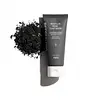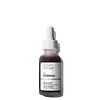What's inside
What's inside
 Key Ingredients
Key Ingredients

 Benefits
Benefits

 Concerns
Concerns

 Ingredients Side-by-side
Ingredients Side-by-side

Water
Skin ConditioningKaolin
AbrasiveButylene Glycol
HumectantBentonite
AbsorbentVolcanic Ash
AbrasiveHectorite
AbsorbentSilica
AbrasiveCharcoal Powder
AbrasiveCaprylyl Glycol
EmollientPentylene Glycol
Skin ConditioningHydroxyacetophenone
AntioxidantCitric Acid
BufferingMagnesium Aluminum Silicate
AbsorbentXanthan Gum
EmulsifyingDisodium EDTA
Dipotassium Glycyrrhizate
HumectantLimus
Skin ConditioningEthylhexylglycerin
Skin ConditioningGlycolic Acid
BufferingWater
Skin ConditioningAloe Barbadensis Leaf Water
MaskingSodium Hydroxide
BufferingDaucus Carota Sativa Extract
PerfumingPropanediol
SolventCocamidopropyl Dimethylamine
EmulsifyingSalicylic Acid
MaskingLactic Acid
BufferingTartaric Acid
BufferingCitric Acid
BufferingPanthenol
Skin ConditioningSodium Hyaluronate Crosspolymer
HumectantTasmannia Lanceolata Fruit/Leaf Extract
AntioxidantGlycerin
HumectantPentylene Glycol
Skin ConditioningXanthan Gum
EmulsifyingPolysorbate 20
EmulsifyingTrisodium Ethylenediamine Disuccinate
Potassium Sorbate
PreservativeSodium Benzoate
MaskingEthylhexylglycerin
Skin Conditioning1,2-Hexanediol
Skin ConditioningCaprylyl Glycol
EmollientGlycolic Acid, Water, Aloe Barbadensis Leaf Water, Sodium Hydroxide, Daucus Carota Sativa Extract, Propanediol, Cocamidopropyl Dimethylamine, Salicylic Acid, Lactic Acid, Tartaric Acid, Citric Acid, Panthenol, Sodium Hyaluronate Crosspolymer, Tasmannia Lanceolata Fruit/Leaf Extract, Glycerin, Pentylene Glycol, Xanthan Gum, Polysorbate 20, Trisodium Ethylenediamine Disuccinate, Potassium Sorbate, Sodium Benzoate, Ethylhexylglycerin, 1,2-Hexanediol, Caprylyl Glycol
 Reviews
Reviews

Ingredients Explained
These ingredients are found in both products.
Ingredients higher up in an ingredient list are typically present in a larger amount.
Caprylyl Glycol is a humectant and emollient, meaning it attracts and preserves moisture.
It is a common ingredient in many products, especially those designed to hydrate skin. The primary benefits are retaining moisture, skin softening, and promoting a healthy skin barrier.
Though Caprylyl Glycol is an alcohol derived from fatty acids, it is not the kind that can dry out skin.
This ingredient is also used as a preservative to extend the life of products. It has slight antimicrobial properties.
Learn more about Caprylyl GlycolCitric Acid is an alpha hydroxy acid (AHA) naturally found in citrus fruits like oranges, lemons, and limes.
Like other AHAs, citric acid can exfoliate skin by breaking down the bonds that hold dead skin cells together. This helps reveal smoother and brighter skin underneath.
However, this exfoliating effect only happens at high concentrations (20%) which can be hard to find in cosmetic products.
Due to this, citric acid is usually included in small amounts as a pH adjuster. This helps keep products slightly more acidic and compatible with skin's natural pH.
In skincare formulas, citric acid can:
While it can provide some skin benefits, research shows lactic acid and glycolic acid are generally more effective and less irritating exfoliants.
Most citric acid used in skincare today is made by fermenting sugars (usually from molasses). This synthetic version is identical to the natural citrus form but easier to stabilize and use in formulations.
Read more about some other popular AHA's here:
Learn more about Citric AcidEthylhexylglycerin (we can't pronounce this either) is commonly used as a preservative and skin softener. It is derived from glyceryl.
You might see Ethylhexylglycerin often paired with other preservatives such as phenoxyethanol. Ethylhexylglycerin has been found to increase the effectiveness of these other preservatives.
Pentylene glycol is typically used within a product to thicken it. It also adds a smooth, soft, and moisturizing feel to the product. It is naturally found in plants such as sugar beets.
The hydrophilic trait of Pentylene Glycol makes it a humectant. As a humectant, Pentylene Glycol helps draw moisture from the air to your skin. This can help keep your skin hydrated.
This property also makes Pentylene Glycol a great texture enhancer. It can also help thicken or stabilize a product.
Pentylene Glycol also acts as a mild preservative and helps to keep a product microbe-free.
Some people may experience mild eye and skin irritation from Pentylene Glycol. We always recommend speaking with a professional about using this ingredient in your routine.
Pentylene Glycol has a low molecular weight and is part of the 1,2-glycol family.
Learn more about Pentylene GlycolWater. It's the most common cosmetic ingredient of all. You'll usually see it at the top of ingredient lists, meaning that it makes up the largest part of the product.
So why is it so popular? Water most often acts as a solvent - this means that it helps dissolve other ingredients into the formulation.
You'll also recognize water as that liquid we all need to stay alive. If you see this, drink a glass of water. Stay hydrated!
Learn more about WaterXanthan gum is used as a stabilizer and thickener within cosmetic products. It helps give products a sticky, thick feeling - preventing them from being too runny.
On the technical side of things, xanthan gum is a polysaccharide - a combination consisting of multiple sugar molecules bonded together.
Xanthan gum is a pretty common and great ingredient. It is a natural, non-toxic, non-irritating ingredient that is also commonly used in food products.
Learn more about Xanthan Gum